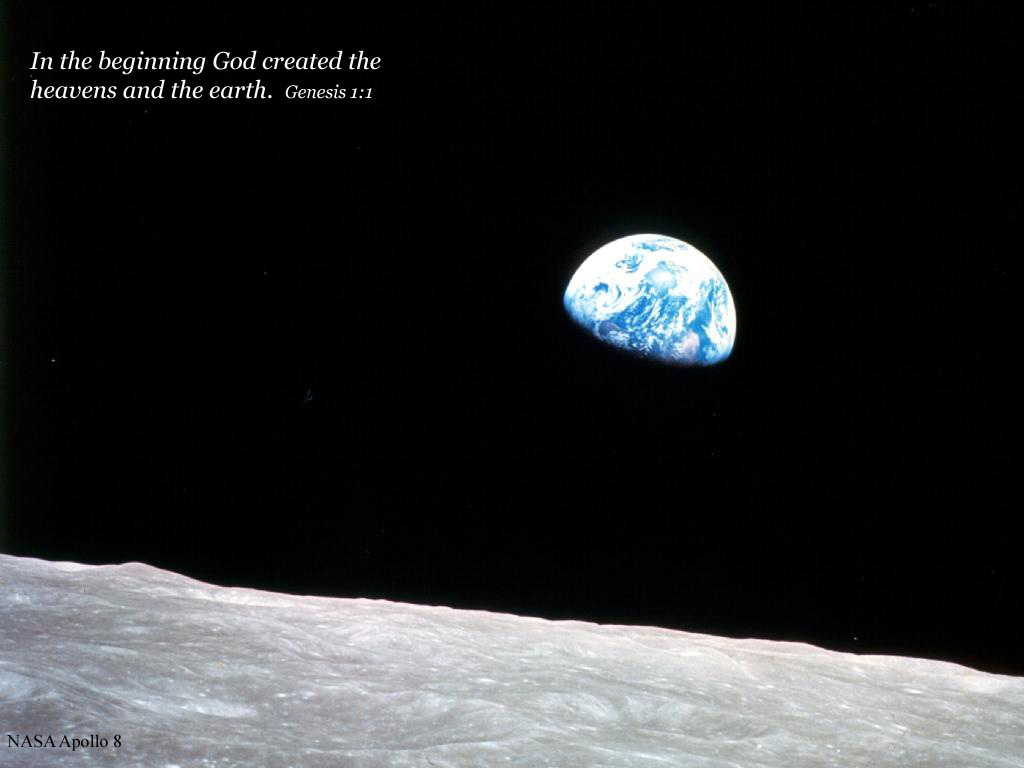PART TWO Life not from Earth It is a universal law which, as all scientific laws, has not witnessed an exception: life does not come from non-life. Yet evolutionists, of the non-theistic sort) must teach that it does. Going further back, ex nihilo nihil fit, out of nothing comes nothing. No one has ever seen or heard of something (i.e. that which has properties and permits predication) coming into existence from nothing (that which has no properties and does not permit …
Category: Apologetics
Part One The Fusion of Confusion Evolutionists, except the rather small coterie of Theistic ones, believe every complex and meticulously ordered thing got here through mechanisms which we neither see now nor can see in the evidence left in the past. Even our cognitive faculties and the immaterial laws of logic and number “evolved.” The Big Bang is the most popular notion of the origin of the universe at the present time, although there is a significant lobby of dissidents. …
This is taken from an introductory lecture in the TELOS Course “The Doctrine of Man and Sin” When I look at your heavens, the work of your fingers, the moon and the stars, which you have set in place, what is man that you are mindful of him, and the son of man that you care for him? Yet you have made him a little lower than the heavenly beings and crowned him with glory and honor. You have …
I really appreciate John Byl’s stand for young-earth creationism against all the accommodationist nonsense of old-earthers. He has written some thoughts about apologist Douglas Groothuis’s big book Christian Apologetics which should be pondered. I think he shows the problems which inhere in the ‘two books’ view and in cow-towing to Big Bang cosmology. http://bylogos.blogspot.com/2014/03/a-defective-case-for-biblical-faith.html#more I agree with Byl that Groothuis’s book has good things in it, although I cannot recommend it as an apologetics book. I feel okay about it …
Recently K. Scott Oliphint of Westminster Seminary, Philadelphia has published a book which he has called Covenantal Apologetics. I reviewed the book here and recommend it. But I expressed reservations about the writer’s agenda of rebranding Van Til’s apologetic teaching in line with the book’s title. Coming as it does from one of the foremost representatives of Van Til’s presuppositional approach around the thesis deserves attention. As I said in my review, by “Covenantal” Oliphint means the ‘covenants’ of covenant …
Part One A Case Study: Harold Netland and the Demand for Neutrality As we further consider whether reason should be categorized separately to faith as properly functioning independent of it, I cite the example of an article by Harold Netland entitled, “Apologetics, Worldviews, and the Problem of Neutral Criteria.”[1] In Netland’s 1991 article we see an able but, I believe, misguided critique of presuppositionalist John M. Frame’s epistemology as set forth in his book The Doctrine of the Knowledge of …
This and the following piece are old posts to which I am giving more daylight. I hope to append a Part Three! It appears to me that one of the first things a faithful theologian needs to do is to straighten out the confusion brought about by the world’s separation of faith and reason. This relationship is so vital to a biblically fastened worldview that to neglect it will involve the believer in a host of conflicting beliefs and …
Intro. I don’t think anyone who employs Van Til’s approach is overjoyed with the label ‘presuppositionalism.’ (PA). Van Til himself wasn’t terribly happy with it. Neither was Greg Bahnsen, whose apologetic acuity made him perhaps Van Til’s most faithful and articulate disciple. Stressing the role of presuppositions did not mean, either for Van Til or Bahnsen, nor Frame or Oliphint, that evidences were not to have an important part to play within this approach. Van Til stated over and over …
Over at the TELOS website I have placed up the following talks I gave at a recent conference Session 1 – Worldviews Get in the Way Session 2 – Apologetics and Worldviews Pt.1 Session 3 – Apologetics and Worldviews Pt.2 Session 4 – Which Books Belong in the Bible? Session 5 – The God of the Bible and the God of Islam …
PART FIVE I want to close off this series of apologetics posts by considering some more quasi-intellectualism from the critic of presuppositional apologetics whom my debater FF relied upon for most of his reasoning. I have named him “Flaw” since he claims to have found the “fundamental flaw” within presuppositional apologetics. In his eight minute video rebuttal of the transcendental argument for God (TAG), he sounded clever, but sounded was the operative word. Consider that in setting presuppositionalists straight Flaw’s …
